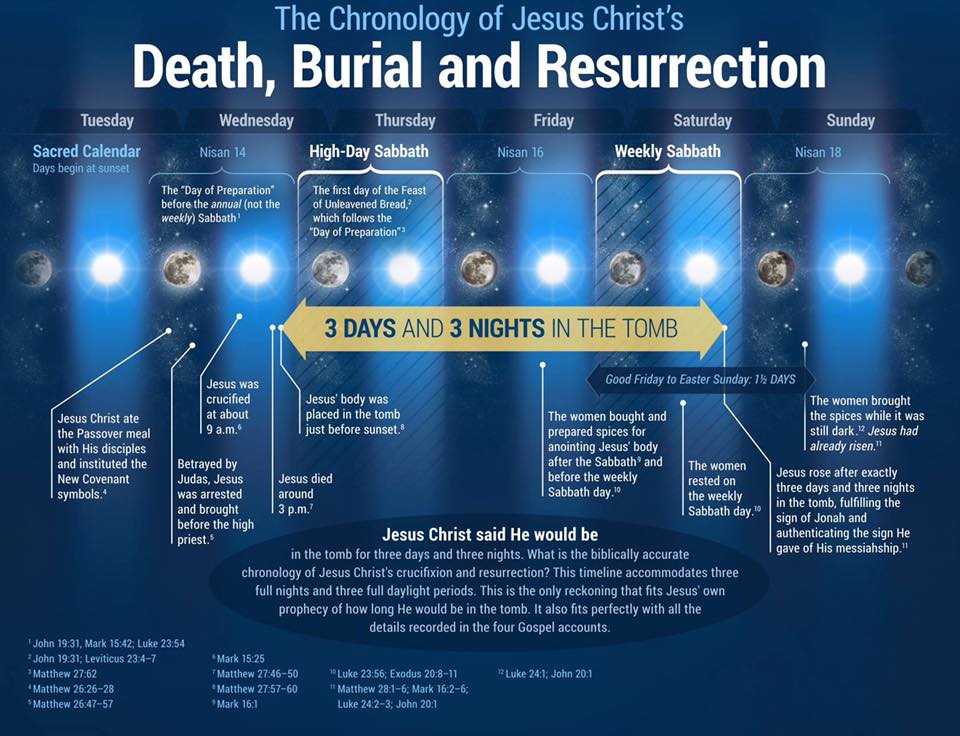
During the filming for God Save the King, one of the crew members and I were having a conversation. He remarked, “Okay, you’ve completely re-educated me about the birth of Jesus of Nazareth, especially the correct date—so tell me something—is the same true for Easter?”
What he meant by this question was, “We’ve got Easter wrong too, don’t we?” My answer was, “Yes, but not quite as bad as his birthdate/Christmas.” You see, “Easter” isn’t a biblical holiday either. Both holidays, commemorating the birth, and later death and resurrection of Jesus of Nazareth are the victims of “tradition” and not in a good way.
Interestingly, the word Easter isn’t even in the Bible. But wait! Many will exclaim. What about Acts 12:4?
And when he had apprehended him, he put him in prison, and delivered him to four quaternions of soldiers to keep him; intending after Easter to bring him forth to the people. [Acts 12:4 KJV, emphasis added]
The simple truth is that the English word Easter is a mistranslation of the Greek word pascha (Strong’s #3957), that means Passover. Pascha is used 29 times in the New Testament, and is translated correctly 28 times, so there is no valid reason whatsoever to translate it “Easter” in Acts 12:4.
The English word Easter is a derivation of the Akkadian word Ishtar, the name of the ancient Sumero-Babylonian goddess of love and fertility—hence the connection to bunnies, eggs, fish, and other pagan fertility symbols.
Not only are both holidays the victims of unyielding tradition, both are also the victims of syncretism. Syncretism is the practice, predominantly by Roman Catholics, but also by other large denominationally based, strongly institutionalized church organizations, of combining doctrines and practices that “appear” Christian, with non-Christian practices of similar appearance. For example, in the case of Easter, because resurrection is a kind of (re)birth, it is connected with fertility, and thereby Ishtar becomes Easter. Or, in the case of Christmas, the birth of the Son, is vaguely connected to the (re)birth of the sun, after the winter solstice. Mix well, codify it, and maintain that salvation relies on absolute adherence, and you get Christmas.
An in-depth article about the true nature of the resurrection will have to wait, so a summary will suffice for now. In preface, let’s remember one of the foundational principles of God Save the King.
“The third most important issue surrounding the traditional nativity story is the very fact that it is ‘traditional’. The modern version of the traditional nativity story is the product of 2000 years of Christian ‘tradition’ as opposed to diligent biblical and historical research. In particular, this tends to mean that the nativity is viewed as ‘Christian’ phenomenon despite the fact that it occurred within a conspicuously Jewish context.”[1]
The exact same thing can be said about Easter. The common “Easter” story is the product of 2000 years of Christian “tradition” as opposed to diligent biblical and historical research. In particular, this tends to mean that Easter is viewed as a “Christian” phenomenon despite the fact that it occurred within a conspicuously Jewish context. One will never truly understand the amazing depth of the death and resurrection of Christ until we return it to its Hebrew context, especially the Jewish spring festivals—the feasts of Passover (Pesach), Unleavened Bread (HaMatzah), and Firstfruits (Bikkurim).
As the lamb of God (John 1:29), Jesus was crucified at the same time as the Passover lambs were being slaughtered. As the bread of life (John 6:35) he was buried on the feast of Unleavened Bread. And as the firstfruits of the them that slept (1 Corinthians 15:20) he was raised from the dead on the feast of Firstfruits. If we miss the unmistakable Jewish context of these events, we miss the point entirely. Jesus was not raised from the dead on Easter Sunday, he was raised from the dead on Saturday, the Jewish Sabbath, but was discovered to have already been raised on Sunday.
The fact that Jesus’ death and resurrection match the Jewish feasts so precisely is part of the evidence used to determine that he was also born on a Jewish feast day (see my essay An Appointed Time).

The death and resurrection of Jesus of Nazareth has been called the greatest story ever told. This is understandable for it truly is the foundation of our faith. But Jesus could not have died and been resurrected if he had not been born. The birth and sacrificial death of Jesus of Nazareth form the bookends of the story of the most significant person in human history, Jesus of Nazareth, the son of God, the Messiah of Israel.
God save the King. Long live the King.
[1]Tim Keyes. Resetting the Chronology for the Birth of Jesus of Nazareth, p.5.